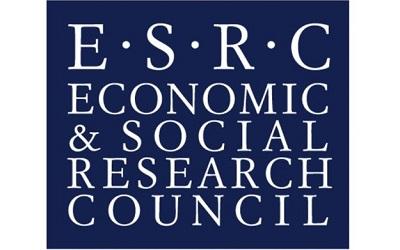You are here
- Home
- Year of Mygration
- Day 238, Year of #Mygration: How does migration make the places we live?
Day 238, Year of #Mygration: How does migration make the places we live?

Jacqui Broadhead, a Senior Researcher in the Centre on Migration, Policy and Society at the University of Oxford, discusses her learning from a project on ‘Migration Making Places, Making People: New Narratives of Inclusion’. The project is a joint initiative with The Open University, led by Dr Umut Erel and Professor Giles Mohan and funded by the University of Oxford’s ESRC Impact Acceleration Account. The post highlights the fact that while the immigration debate tends to have a national dimension, the effects and impact of migration are felt in town and cities where the migrants settle and make a home. Policymakers should engage with the communities who are better placed to understand what is happening and are likely to provide a better insight into how to deal with challenges that may arise in the context of integration.
The public consistently ranks migration as one of the most critical issues facing the UK. The publication of the long-awaited Immigration White Paper has been delayed, and the latest news is that it will be launched before the end of the year. We will likely once again see an immigration debate focussed on the national level, on how many people should be allowed into the UK and the role of the Home Office in controlling the border and visa policy. However, many of the effects of migration are felt most strongly at the local level, in our communities, our sense of place and how this is changing and evolving.
Too often these considerations are absent from the migration debate with place and communities coming a distant second to the perceived needs of the border, when research such as the National Conversation on Immigration tells us that the effects of migration (both positive and negative) on our day to day lives are central to our experience and understanding.
In particular, cities are often a focal point for migration; they are the places which have the highest rates of migration and also seem to have the strongest capacity to manage this change. However, UK cities have not traditionally had a loud voice in migration debates, and migration and inclusion have not always figured highly in discussions around how to shape the future of communities. This state of affairs reflects the narrowness of the immigration debate, which often reinforces polarisation and oversimplification, often to the detriment of a concerted effort to embrace the assets which newcomers bring and to respond to the challenges which communities face together as a whole.
Incorporating a wider range of voices and perspectives, from the arts, history and storytelling could support us to understand better the way that migration shapes and makes our communities and places.
That is why, in a project on ‘Migration Making Places, Making People: New Narratives of Inclusion’ Umut Erel and Giles Mohan led researchers from the Open University together with Jacqui Broadhead who led the team from the Global Exchange on Migration and Diversity at the University of Oxford have been working with the Migration Museum Project, Tate Exchange and Counterpoints Arts, to explore the ways in which the stories we tell on migration and inclusion create (and sometimes undermine) our sense of place. In doing this, we can perhaps forge new ways of understanding the complex ways in which our cities are developing and the stories of identity and belonging which make up what it means to feel part of the town (and, in fact, part of all local communities) at a pivotal moment for the United Kingdom.
The project has developed education workshops, worked with community groups, developed symposiums with academics and policymakers in local and national government and hosted ‘pop up professor' events to encourage greater exchange between research, policy, practice and the public on these complex issues which affect our day to day lives.
Alongside examining how the hostile environment can undermine efforts to build inclusive communities, it also looked at the things that local government, civil society and others can do, even in a somewhat chilly national environment, to bridge across divides, to build solidarity and a sense of ‘the big us.' The project was mainly focussed on projects which support both newcomer communities and longer standing communities based on the understanding that integration and inclusion are shared responsibilities which belong to all of us.
You can find out more about the project, and specific examples of how UK cities and communities groups are responding through the Open Learn resource ‘Exploring how migration changes the places where we live.'
The research builds on the Inclusive Cities project – a knowledge exchange between 6 UK cities to facilitate a step change to the inclusion of newcomers within the city
Quarterly Review of Research
Read our Quarterly Review of Research to learn about our latest quality academic output.

Contact our news team
For all out of hours enquiries, please telephone +44 (0)7901 515891
News & articles
- Shaping a sustainable future – the power of Open Research 24th April 2024
- New research into Pompeii to be revealed by OU/BBC co-production 12th April 2024
- OU research among UK funding boost for international space projects 8th April 2024
